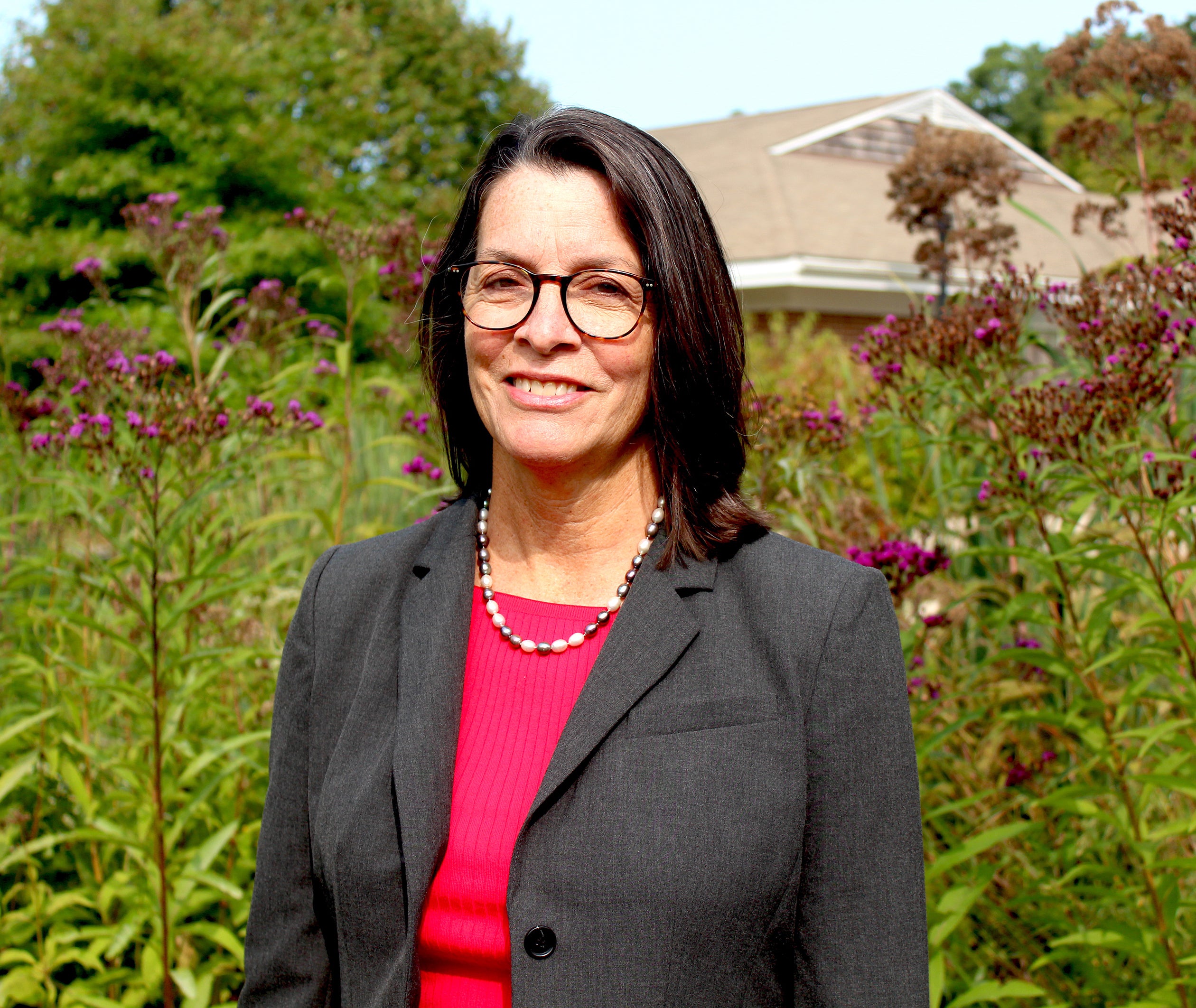KINGSTON, R.I. — May 12, 2021 — The COVID-19 pandemic has highlighted, perhaps more than any other period in recent history, the critical importance of the healthcare system, and the need for a multidisciplinary approach to health care and public health.
The University of Rhode Island Academic Health Collaborative’s mission is to bring together students, faculty, clinicians and researchers engaged in interdisciplinary work in the health sciences. Its director, Elizabeth Roberts, has extensive experience in several areas of the healthcare system, and shares the collaborative’s mission to bring together students and faculty members from multiple disciplines to learn, research and train together.
“Especially during the year of COVID, I came to URI because, we train so many of the professionals who help us stay healthy,” said Roberts, who was appointed the director last spring. “They help us when we’re sick, but they also really help us stay healthy. When they work out in the community, they’re always part of a clinical team, and one of the reasons I came to URI is that we have the opportunity to help them learn in clinical teams.”
Roberts, a Providence resident, has overseen and served as a member of clinical teams throughout her career. While earning a Master of Business Administration Degree in Health Care Management from Boston University, she began her career in clinical research at Pawtucket Memorial Hospital, before moving into healthcare management. Roberts served 18 years in elected office — including eight years as Rhode Island’s lieutenant governor, during which she oversaw the state’s implementation of the Affordable Care act. She was also appointed secretary of the State Office of Health and Human Services, and led a major Medicaid reform that resulted in significant savings and improved delivery of health care in Rhode Island.
“I’m not an academic, I don’t come from higher ed, but I’m somebody who has a great respect for research and learning at the higher education level that we can then translate into better delivery of health care services and improved health,” Roberts said. “And I think in the next few years, as we’re learning from COVID, there’s going to be enormous research and reconsideration of our healthcare system. There’s going to be an even greater emphasis on an interdisciplinary approach to health care and public health, and I think URI is in a place to be very impactful in that.”
Roberts has played a significant role in the Academic Health Collaborative’s work during the pandemic. Drawing from the faculty and alumni of AHC programs and also the contacts she has acquired during a long service career, she brought together health and higher education professionals for a series of insightful panel discussions addressing the challenges health care workers face and the lessons being learned during the fight against the coronavirus pandemic.
Roberts is among the University leaders of an effort to establish the Transforming Health in Rhode Island Partnership between URI and the state Department of Labor and Training that aims to enhance population health by working to prepare professionals who “can engage in health solutions from the cellular to the societal level.” She is also working on creating shared courses across the three colleges of the AHC — the Colleges of Health Sciences, Pharmacy and Nursing — including an ethics course for students across the colleges.
“To me, there is such an opportunity at URI. We have so many members of the clinical team who we educate, having them learn together just seems like such a valuable thing to do,” Roberts said. “The research is something that is potentially even more exciting. We have at URI research around important issues like new vaccines and neurodegenerative disorders, but also around practice — how do we deliver services most effectively to people. Even more collaborative research could go on; one of my goals is helping faculty make those connections to help improve health and health care throughout the community.”
In the long term, Roberts aims to increase URI’s and the collaborative’s presence across the state, engaging with more diverse populations to better structure improvements to public health. The COVID-19 pandemic has made clear the need to engage with all age groups and ethnicities to improve the overall community’s health.
“How do we think about what happened to older people during the pandemic, for example? How do we change care in ways that enhances patient care?,” Roberts said. “We have people in clinical sites in Providence, but I think there is more we could be doing to work with the broader community in Rhode Island. As hard as this year has been, I’m loving the people I’ve gotten to work with and the opportunities the Academic Health Collaborative presents to impact the greater community.”

